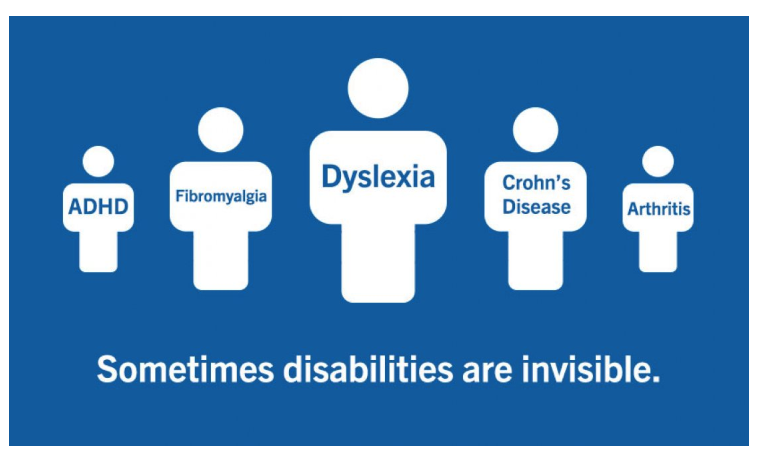 This is defined as an illness which does not display symptoms which are outwardly visible
This is defined as an illness which does not display symptoms which are outwardly visibleWhat Is an Invisible Illness?
This is defined as an illness which does not display symptoms which are outwardly visible. There are both physical and mental illnesses which come into the category. Invisible physical illnesses include some which most people will have come across such as arthritis and diabetes. Other less familiar examples are endometriosis (heavy periods and pelvic pain), fibromyalgia (excessive tiredness, all-over pain and muscle stiffness) Crohn’s and colitis (inflammation of the colon and inflammatory bowel disease). Invisible mental illnesses include anxiety, depression, phobias and bipolar disorder.
How Can Employers Help?
1) Start as You Mean to Go on with New Employees
It may not be the first topic on the mind for discussion, and employees may be unwilling to start the conversation. Subtle ways of making employees aware that they will be fully supported could include information in the staff handbook. Induction sessions should cover all avenues in terms of making staff aware that they will not be discriminated against if they have issues about invisible illnesses that they need to discuss. Regular meetings and annual reviews one-to-one with a line manager are of course of paramount importance – not just for giving the opportunity to open conversations on medical issues.
2) Keep the Discussion Specific
If an employee comes to you wanting to talk about their invisible illness, make sure that you ask them how it makes them feel and how you can support them. Don’t just launch straight into discussing the illness in a generic way. If at the end of the discussion you need to find out more about a particular condition, you can do your research online or by sending for information leaflets from relevant organisations. If you feel that it might be more appropriate to refer your employee to an expert within the organisation, then don’t hesitate to do so.
3) Have a Good Relationship with Your HR Department and Other Professionals
If your organisation is big enough to have a dedicated HR department, this should be your first port of call if you need to know how to advise and support. HR in some situations could write to the doctor, with the employee’s permission, in order to find out how best to support an individual and what adaptations may be appropriate. For instance, with Crohn’s, making sure that toilet facilities are accessible and close to the office could be a big help. HR could also investigate support and advice from local specialist charities. If treatment is needed, then you could in certain circumstances offer to pay the bill.
4) Look After the Individual
You may want to find out more about invisible illnesses in general terms, but the best thing you can do for your employees is to make life easier for them with simple adaptations to the desk and work space. For those suffering from depression who find it difficult to be motivated early in the morning, flexible working hours and even allowing them to work from home can be of enormous benefit. If an employee has a driving phobia and needs to get to occasional meetings, allow them to use taxis where appropriate and ask them how much extra time they might need for travelling.
Recruiters love this COMPLETE set of Accredited Recruitment & HR Training – View Training Brochure








